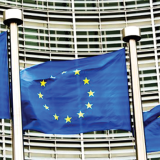
This report examines the operations of social partner organisations and collective bargaining in the telecommunications sector. The first section gives an outline of the economic background of the sector. The second section describes the social partner organisations in all EU Member States except Sweden, focusing in particular on membership levels, role in collective bargaining and public policy, and national and European affiliations. The final part looks at the relevant European organisations, particularly their membership composition and their capacity to negotiate. The aim of the series of studies on representativeness is to identify the relevant national and supranational social partner organisations in the field of industrial relations in selected sectors. The impetus of these studies arises from the European Commission objective to recognise the representative social partner organisations to be consulted under the EC Treaty provisions. Hence, this study is designed to provide the basic information needed to establish sectoral social dialogue. The first objective of the study is to pinpoint the relevant national associations on both sides of industry. In this context, relevant associations are understood as sector-related social partner organisations in the sense that their membership domain includes the sector, and that they are either involved in sector-related collective bargaining or affiliated to a sector-related European organisation. The second objective is to examine the sector’s relevant European organisations.
